Jamia's Democracy Under Siege? Students Defy 'Crackdown' on Protests, Academic Space and Freedom
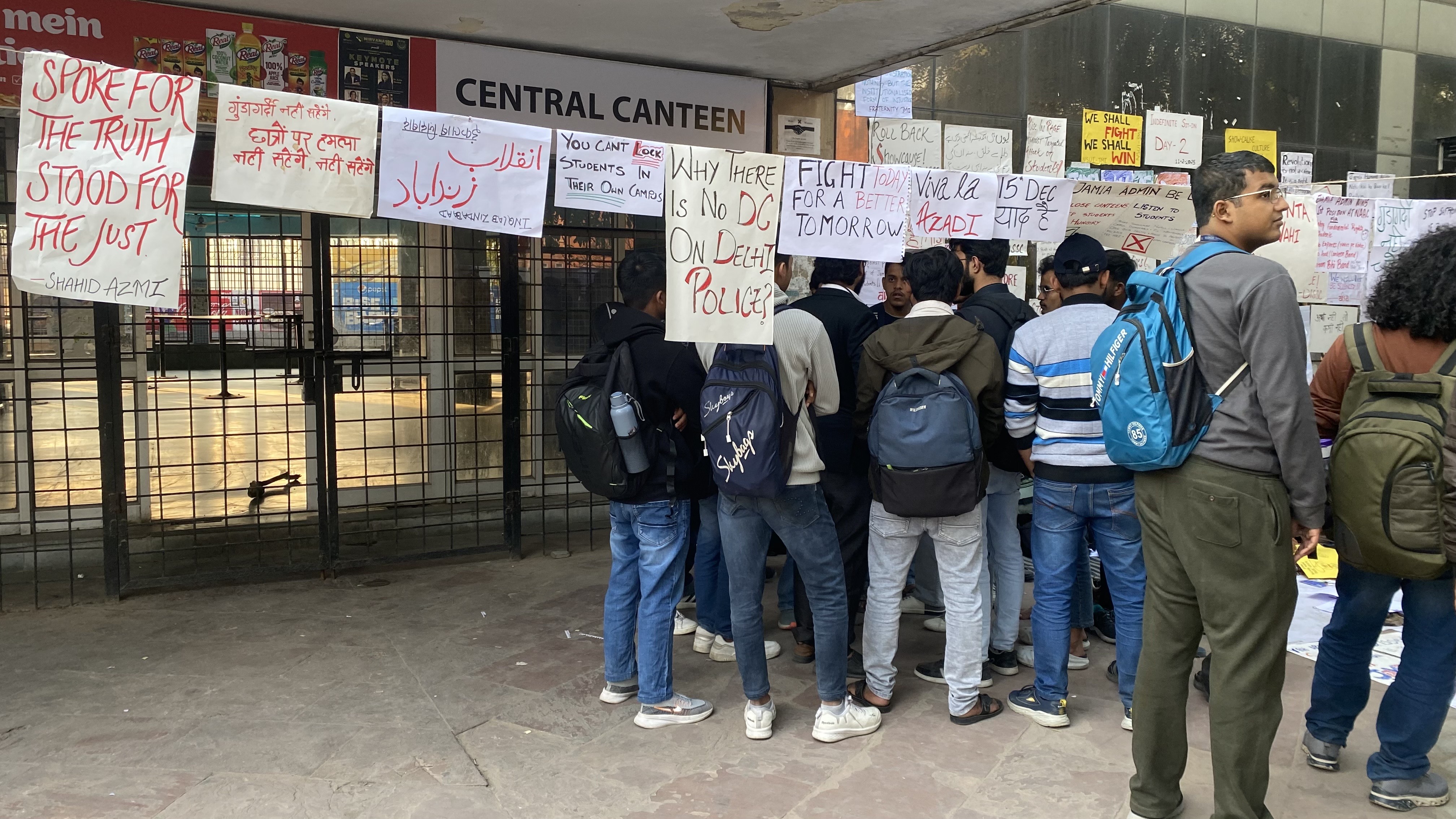
Unzila Sheikh, TwoCircles.net
“Even prisoners have access to basic facilities, but here, they locked the washrooms. At night, the proctor deliberately broke the electricity board and then tried to blame the students —but we have proof to the contrary. The washrooms remained shut all night. The darkness, the lack of security — it was terrifying. The (Jamia Millia Islamia) administration should at least show some humanity when it comes to essential needs like washrooms and lighting,” said Jyoti, a PhD scholar in Hindi and an activist of the Dayar-i-Shauq Students Charter (DISSC) at the varsity.
Jyoti, along with three other students —Saurabh, Niranjan and Fuzail — received show-cause notices for allegedly organising a gathering to mark the fifth anniversary of the police crackdown on Jamia Millia Islamia (a central university in the national capital) during the 2019 protest against the controversial CAA-NRC (Citizenship Amendment Act and National Register of Citizens). The (university) administration deemed the protest “illegal” and issued the notices to the activists.
“We were only given three days to file our responses, breaching all principles of natural justice,” she alleged.
Despite all four students submitting nearly identical replies, the AISA activists claimed that the administration singled out Saurabh, a PhD scholar, calling his response “unsatisfactory” and initiating a Disciplinary Committee (DC) proceeding against him.
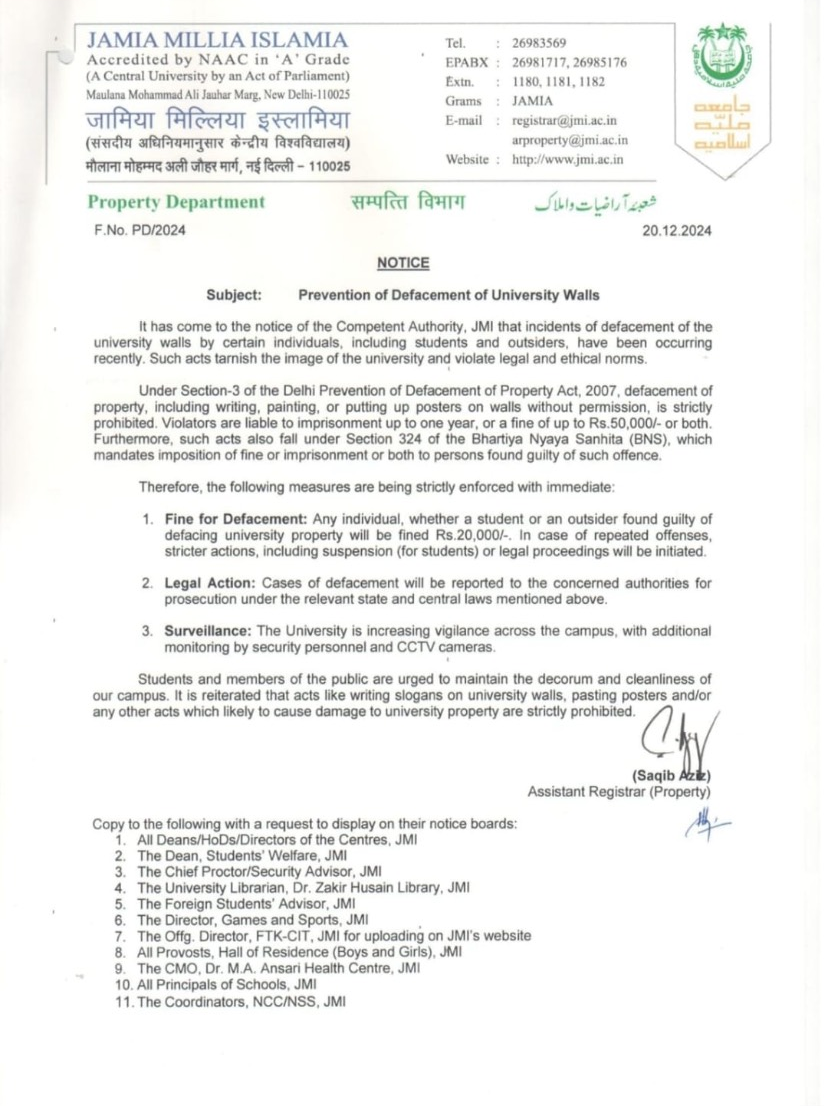
Jyoti too received a DC notice for allegedly organising an agitation against these "arbitrary" actions of the Jamia administration. To oppose the move, the students launched an indefinite protest at Gate Number 7 on February 10. Tensions escalated on the second day when a security guard physically assaulted a student. A video of the incident went viral, sparking outrage.
“The proctor wanted to meet the four of us privately, but we refused. This is not just about us; this is about every student. Discussions must happen in front of everyone, not behind closed doors. We will not back down until our demands are met,” said Niranjan, another student activist from All India Revolutionary Students Organization (AIRSO).
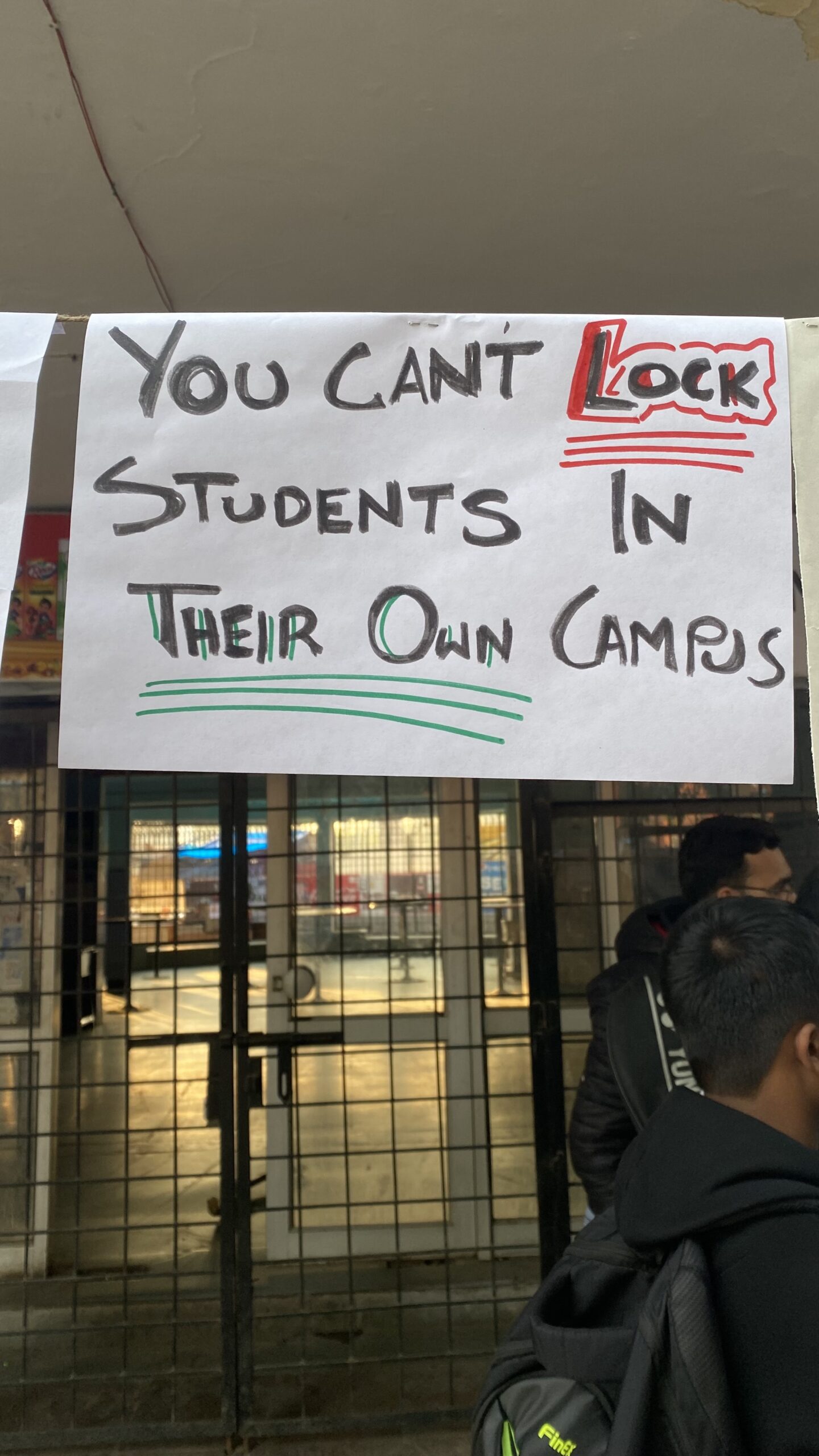
The protest, initially planned for December 14 and 15, was postponed after the administration suddenly declared a “maintenance day” and shut the campus.
“On December 12, students formally notified the proctor of their intent to protest, but the request was denied. On December 14 and 15, two circulars ordered the closure of the library, canteen and laboratories. At 2 pm, long before the scheduled protest time of 5 pm, authorities began dispersing students. Yet, a small group resisted, staying back as no official order mandated campus closure. The Jamia administration then called the Delhi Police, threatening the protesters with detention,” alleged Saurabh, a Hindi PhD scholar, from AISA, at the varsity.
He also questioned the university’s silence over the "police brutality" inflicted on its students. “How can the university not let us remember the cruelty done against its own students and premises at the hands of Delhi Police in 2019? On December 16, 2024, nearly 500 students gathered to hear survivors of the December 15, 2019 police attack. The next day, my parents, my research supervisor and I received a show-cause notice. Three others got the same, and we were given only three days to respond instead of the legally required 15. They accused us of disrupting classes and pushing a political agenda. But how is demanding justice for our fellow students a political agenda? And what classes even take place after 5 pm?” he asked.
Saurabh further explained that after the protest poster was released, he began receiving calls from Delhi Police officers, who claimed the Jamia administration had informed them about the event. “On February 9, 2025, at 10:33 pm, we received e-mails from the proctor’s office summoning us for disciplinary hearings on the 25th. The very next day, we had to answer to our supervisors. Before starting our sit-in, we burned the show-cause notices.”
The student activists have demanded the revocation of the Office Memorandum dated August 29, 2022, and November 29, 2024, the withdrawal of Disciplinary Committee proceedings against Saurabh and Jyoti and the revocation of notices regarding postering and graffiti on Jamia’s walls. They also insist on the restoration of campus democracy at Jamia.

The two controversial memorandums at the heart of this conflict, issued on November 29, 2024, and August 29, 2022, banned protests or slogans on campus without prior approval from university authorities. These directives warned that disciplinary action would be taken against violators and forbade demonstrations targeting constitutional authorities or law enforcement without formal consent. The AISA condemned these measures and calling them “an attack on the very essence of a university”. It accused the university administration of succumbing to political pressure from the ruling regime. The Jamia Millia Islamia administration had, according to the AISA, become a "mouthpiece for the BJP-RSS agenda".
On December 20, the administration allegedly imposed fines of up to Rs 50,000 for reportedly defacing property, citing the Delhi Prevention of Defacement of Property Act (2007) and invoking Section 324 of the Bharatiya Nyaya Sanhita (BNS), which prescribes fines and imprisonment for violators. The AISA, however, argued that these rules were not about maintaining decorum but were part of a broader crackdown on student dissent.
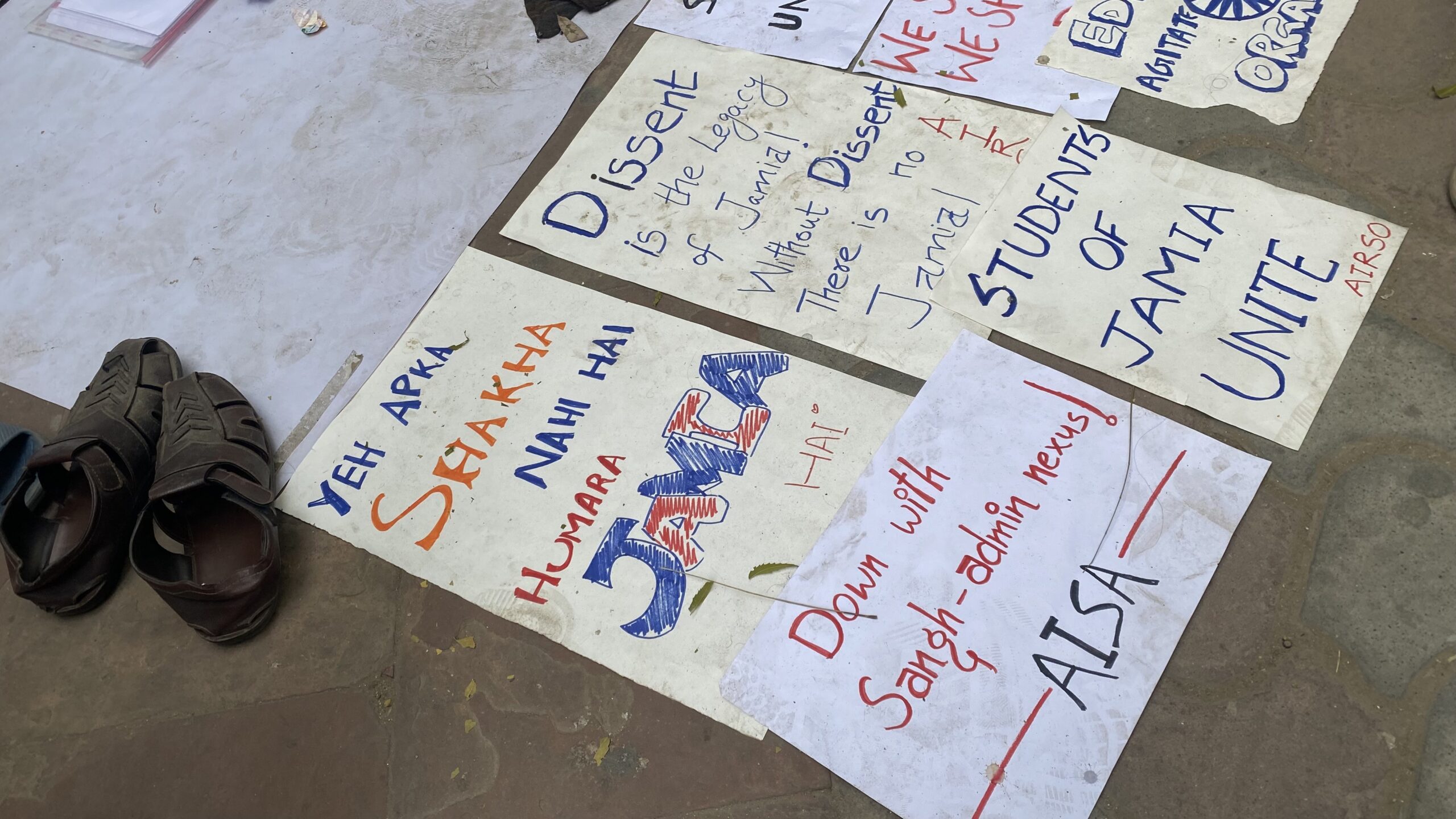
“These show-cause notices are baseless. They do not cite any unconstitutional or malicious acts on our part. Even our lawyer said we could challenge them. The administration knows this, which is why they hesitate to take decisive action against us,” Jyoti said. “The DC hearing is on the 25th, but our demands must be met before then. The most important of these is restoring democracy. We cannot organise cultural events, study circles or even invite professors for lectures. What kind of university is this if we are not allowed to engage intellectually? The administration is systematically eroding Jamia’s minority status and attempting to erase democracy through these undemocratic memoranda.”
Zohaib (name changed), a professor at the university, described the shrinking academic space as "suffocating". He alleged that an "institutional mechanism" was in place to control student thought. “Even research topics are being censored. Just last week, I was organising a talk on hate speech, and a superior asked me to remove the term 'hate speech' to avoid trouble."
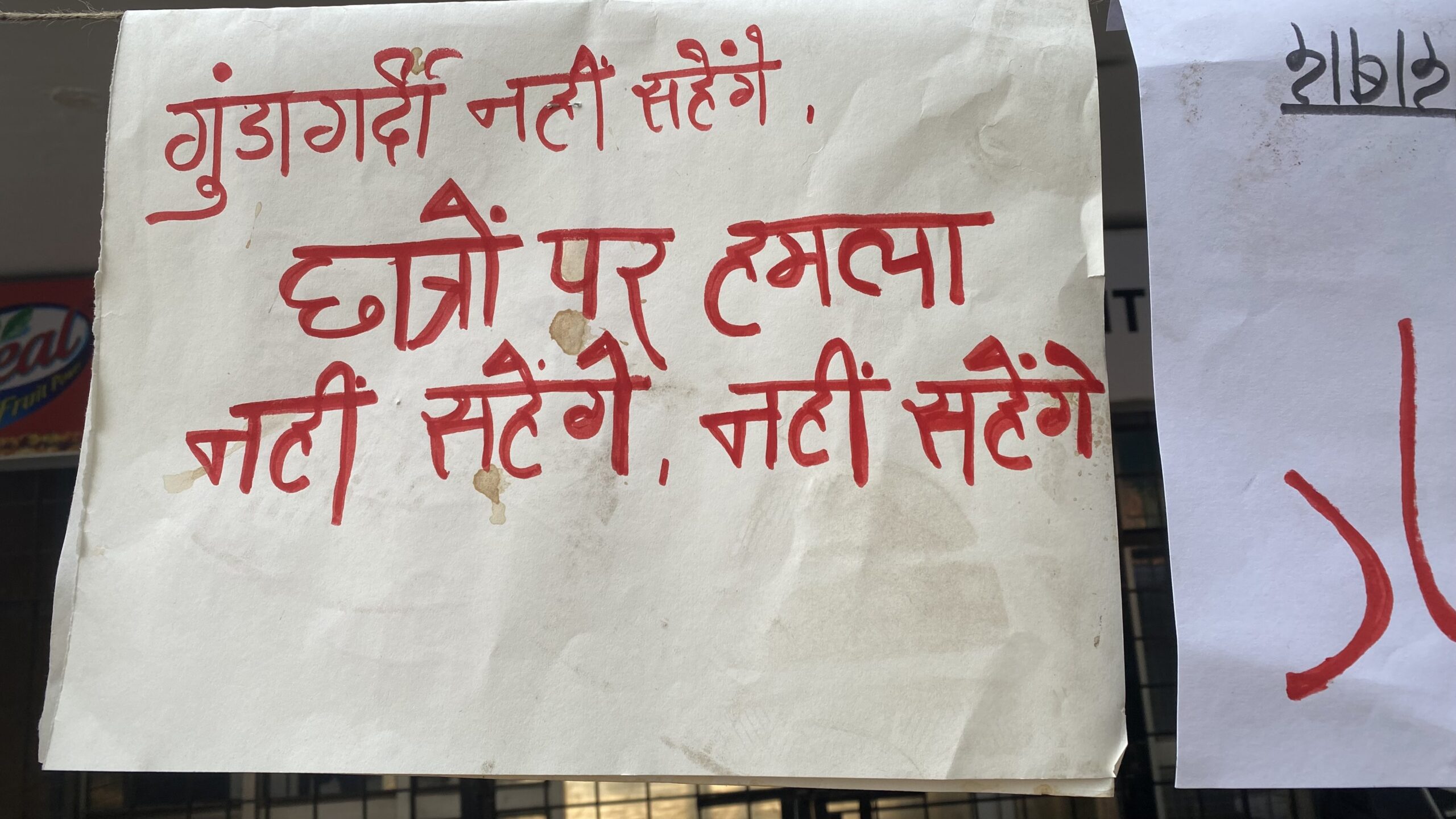
A 2023 report by Sweden’s V-Dem Institute noted that India ranks among 22 countries where academic freedom has significantly declined over the past decade. India now lags behind Nepal, Bhutan, Bangladesh, Pakistan and Myanmar. The decline began in 2009, with university autonomy shrinking and saw a steep drop in all academic freedom indicators after 2013.
"Universities have always been sites of dissent, shaping political movements from the colonial era to post-Independence India. From the student-led Non-Cooperation Movement of 1919 to the first strike against academic discrimination in 1920, campuses have produced generations of leaders. But today, they have become ideological battlegrounds. The ruling regime is enforcing a singular ideology — Hindu nationalism — while systematically silencing dissent and eroding their democratic foundations," said Saurabh (name changed), a professor at JNU.
We have reached out to the Jamia administration for comment but not received a response by the time of publication.
